Craft
Jon Raymond on Sufist Organizational
Management, Multiplicity, and Rain Dragon
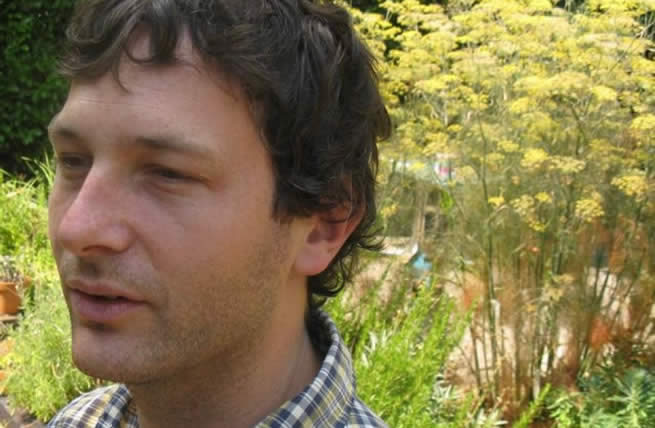
 on Raymond published his first novel, The Half-Life, in 2004. His 2008 story collection, Livability, contains the stories that served as source material for the films Old Joy and Wendy and Lucy, both directed by Kelly Reichardt. Raymond also wrote Reichardt's 2010 film, Meek's Cutoff, and was nominated, with Todd Haynes, for an Emmy Award for his work writing the HBO miniseries Mildred Pierce. Rain Dragon, his third book of fiction, came out earlier this year.
on Raymond published his first novel, The Half-Life, in 2004. His 2008 story collection, Livability, contains the stories that served as source material for the films Old Joy and Wendy and Lucy, both directed by Kelly Reichardt. Raymond also wrote Reichardt's 2010 film, Meek's Cutoff, and was nominated, with Todd Haynes, for an Emmy Award for his work writing the HBO miniseries Mildred Pierce. Rain Dragon, his third book of fiction, came out earlier this year.
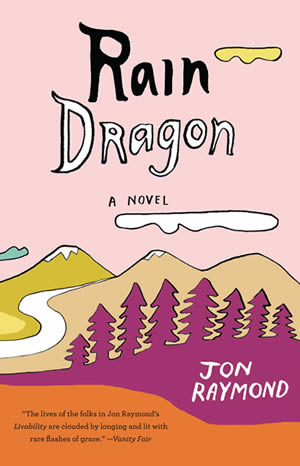 PROPELLER: At the beginning of Rain Dragon, the main character and his girlfriend arrive at an organic farm known primarily for its yogurt. What they discover, however, is that the farm is run in a way that allows the Rain Dragon company to develop whatever kinds of products or services its employees or volunteers think up. That leads the company and the main characters in interesting directions, but I realized after finishing the novel that yogurt had struck me as an entirely natural starting point, though the company heads in a non-food direction. Did you know from the beginning of writing that you were going to start with food as an entry point into other questions, or did that occur to you later? And why did food seem the right start to you?
PROPELLER: At the beginning of Rain Dragon, the main character and his girlfriend arrive at an organic farm known primarily for its yogurt. What they discover, however, is that the farm is run in a way that allows the Rain Dragon company to develop whatever kinds of products or services its employees or volunteers think up. That leads the company and the main characters in interesting directions, but I realized after finishing the novel that yogurt had struck me as an entirely natural starting point, though the company heads in a non-food direction. Did you know from the beginning of writing that you were going to start with food as an entry point into other questions, or did that occur to you later? And why did food seem the right start to you?
JON RAYMOND: I always knew ultimately this was going to be an organizational management book. I grew up the child of a Sufist organizational management consultant, so I've been morbidly interested in the world of life-coaching, self-enhancement, human motivation, etc. for about as long as I remember. So yeah, the characters in this book were always destined for the corporate seminar room. That said, I wasn't always sure exactly how they were going to get there. I ended up conceiving of Rain Dragon, the farm that initially draws them to Oregon, as a kind of hippie Enron: a place of organic, sustainable values, yes, but also of great entrepreneurial energy, risk, internecine competition, and ideological chicanery—a place that combines the bromides of the "green" or "creative" economy with the exploitive drives we've come to associate with speculative capitalism. I think it's a combination that exists in real life. And while the connections the book follows between the food world and the consulting world might on the surface seem a bit tangled, I think they're really there.
PROPELLER: I'm going to admit that I'm not entirely sure what a Sufist organizational management consultant is. I didn't hear the term "life coach" until probably the 1990s, but you're referring to the cultural context of an earlier decade. Where did you grow up that made it possible for someone to be a Sufist organizational management consultant? Did you realize that what your dad was doing for a living was a somewhat new thing, or did you just assume it was a standard possible career?
JON RAYMOND: You don't know any Sufist organizational management consultants?? How strange.
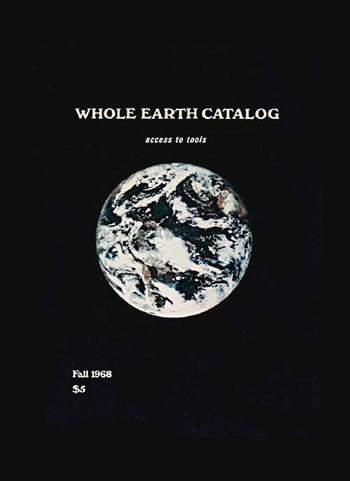 But no. To say my dad was a Sufist organizational management consultant is also just a polite way of saying he was chronically unemployed. He did participate in some of the major cultural movements of the 60s and 70s—he was a publisher of the Whole Earth Catalogue, an early Bay Area Zen Buddhist, and an early proponent of alternative energy—but by the 80s, he'd settled into some pretty metaphysical, and pretty sporadically lucrative, consulting work. He did land a great gig retraining the workforce of PacBell in the Bay Area, though. It was a nice payday for a while, and also a major debacle, with the workers ultimately revolting against what they perceived as mind control. It was a big deal in our family for many reasons, and definitely provided the germinal inspiration for this book.
But no. To say my dad was a Sufist organizational management consultant is also just a polite way of saying he was chronically unemployed. He did participate in some of the major cultural movements of the 60s and 70s—he was a publisher of the Whole Earth Catalogue, an early Bay Area Zen Buddhist, and an early proponent of alternative energy—but by the 80s, he'd settled into some pretty metaphysical, and pretty sporadically lucrative, consulting work. He did land a great gig retraining the workforce of PacBell in the Bay Area, though. It was a nice payday for a while, and also a major debacle, with the workers ultimately revolting against what they perceived as mind control. It was a big deal in our family for many reasons, and definitely provided the germinal inspiration for this book.
But yeah, my dad's employment history was always something of an open joke in our family. No one could really say what he did. I will say this about his work routine, though: his morning meditation practice, just sitting on a pillow ringing a bell for an hour or so, provided me with an excellent example of the writing life. Not too many aspiring writers are given such a perfectly sedentary role model in their own home. I attribute my ability to sit still and write to my Buddhist dad.
PROPELLER: You maintain a really skillful—and probably crucial, for this story—narrative distance from the characters. It's that carefully-calibrated distance that makes it so that we're never laughing at the characters—the narrative voice is never superior to them—and yet there are times at which I couldn't help but sense a kind of gentle irony in play. I know this is often a tough thing to talk about, but I'm wondering how you found that narrative distance. How did you know when a scene was playing out with the tone you wanted, and how did you know when it might have been the right material, but not the right distance or approach?
JON RAYMOND: I think you're hitting on what really turned out to be the hardest task in writing this book. I entered into the project knowing I definitely didn't want to write a satire. Rather, I hoped to paint a picture of a larger New Age culture with as much seriousness and dignity as possible. As a life-long West Coast person, I know for a fact that the theology of vibrations, synchronicity, energy work, magical thinking, yoga, Reiki, etc, is a real and powerful force, and that "California consciousness," as the writer Erik Davis calls it, by now permeates almost every facet of our society, from the locker room to the board room to the classroom to the massage room. I wanted to treat this living tradition with the same kind of gravity that, say, Graham Greene or Walker Percy treated their Catholicism. For many reasons, I failed in that task. Primarily, I'm just not nearly the writer those guys were. But also, as it turns out, the theological foundations of this tradition are just much flimsier. So as much as I wanted to avoid satirizing New Age thinking, it was kind of impossible to avoid a certain level of judgement at points. I hope the laughter at least always remains suppressed, though.
PROPELLER: I think you were quite successful in that—I never felt the book was a satire. No character ever says anything that's stupid or silly, and their thoughts and feelings seem perfectly plausible and relatable. Maybe because satire is "broad"—it announces itself directly and works via exaggerated situations—what you've done in Rain Dragon, in order to avoid a satirical tone, is more subtle? When you say Walker Percy, are you thinking of The Moviegoer? Are there particular Graham Greene titles you're thinking of? And are there any contemporary books or authors you've read who have taken this approach?
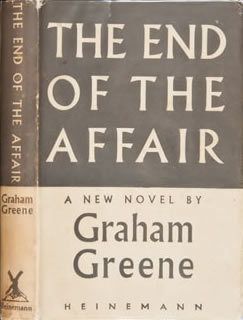 JON RAYMOND: Yeah, The Moviegoer, and also Lost in the Cosmos, his "self help" book. And with Graham Greene, I was mostly thinking about The End of The Affair. With both of those writers, I greatly admire the sensibility, the theological-philosophical orientation, but also find the adherence to traditional dogma utterly bizarre. I mean, Percy and Greene are both such idiosyncratic Catholics, but still, they never entirely let the Church go. The basic contract at the center of The End of the Affair, for instance—a woman's pact with God to allow her lover to live if she goes back to her unhappy marriage—is just incredibly odd. So odd, in fact, that it brings to mind the cosmic, superstitious deal-making of any number of New Age rune-readers or ceremony-doers around here. Greene's relationship with God is so personal, so gnostic, there are moments he could almost just let go and become a Wiccan. Of a certain, severe type, anyway.
JON RAYMOND: Yeah, The Moviegoer, and also Lost in the Cosmos, his "self help" book. And with Graham Greene, I was mostly thinking about The End of The Affair. With both of those writers, I greatly admire the sensibility, the theological-philosophical orientation, but also find the adherence to traditional dogma utterly bizarre. I mean, Percy and Greene are both such idiosyncratic Catholics, but still, they never entirely let the Church go. The basic contract at the center of The End of the Affair, for instance—a woman's pact with God to allow her lover to live if she goes back to her unhappy marriage—is just incredibly odd. So odd, in fact, that it brings to mind the cosmic, superstitious deal-making of any number of New Age rune-readers or ceremony-doers around here. Greene's relationship with God is so personal, so gnostic, there are moments he could almost just let go and become a Wiccan. Of a certain, severe type, anyway.
But I'm rambling here. What I really love about Greene and Percy are their concern with providence and destiny. Their characters (and maybe they themselves) feel the need to touch the hand of an ultimate power in their lives. They have to feel the force of their own, peculiar fate. And I think that is something that potentially binds them with New Age spirituality. In all these cases, people are actively trying to submit themselves to a greater power, actively seeking ultimate signs of how to proceed. They might end up discovering a cruel destiny is in store, but even that's better than the alternative. The worst is misunderstanding one's own path, or never finding it at all. To Walker Percy, certainly, moral struggle is never a heavy burden. What's a burden is the aimlessness and unknowing of despair.
PROPELLER: So then recognizing that the need to find one's own path is an authentic and crucial endeavor is maybe one of the reasons satirizing the Rain Dragon farm would be counterproductive to your project: the satire could easily read as an implicit suggestion that folks should just be normal and lead mainstream lives and do what everyone else does, which isn't your point at all. I feel like you bring this same approach to the romantic relationship between Damon and Amy, the young couple in the novel. You've mentioned a burden of aimlessness and unknowing in a spiritual context, but the novel also explores the aimlessness and unknowing of young people who can't figure out if they belong together romantically, which is complicated by the fact that they don't know what they want to do career-wise. Rain Dragon-like enterprises often seem to suggest that spiritual, personal, and professional conflicts can all be resolved via one organization or philosophy. As a writer, did having to manage narrative conflicts occurring in those three arenas lead you to any thoughts on whether the spiritual, personal, and professional can be successfully conflated? The belief that they can be seems to underlie a number of philosophical traditions.
JON RAYMOND: I think a novel is built on multiplicity. Multiple storylines, multiple characters, multiple perspectives. So much of the pleasure of reading a novel is experiencing diverse facets of life brought together, diverse threads of existence stitched into some (seemingly) coherent whole. So yeah, the coexistence of spiritual, romantic, and professional currents seems almost inherent in the enterprise of the novel. You could say novels are like the ultimate self-actualization seminar that way, a place of wholesale, holistic integration. And I might even go further and say that I think it's in the the shuttling back and forth between these multiple storylines or perspectives that narrative momentum is created. We shift from person to person, time to time, fear to fear, and somehow the gears catch and push us ahead. So, that said, the existence of romantic- and work-related storylines in Rain Dragon became useful to me in constructing the book's narrative drive. Since I decided early on to write the book in first person, I wasn't able to cut between different stories per se, and thus I effectively had to carve out multiple storylines inside the main first-person story. I always told my editor the book was about the love of work and the work of love. Those were kind of the two pistons that moved the book forward.
PROPELLER: A crucial character in the novel is Peter Hawk, Rain Dragon's creator. I don't think it's a spoiler to say that Rain Dragon isn't a cult, and that Peter Hawk isn't some kind of cynical charlatan—this isn't that kind of story. How, though, did you decide upon the qualities that Rain Dragon's creator would need to have?
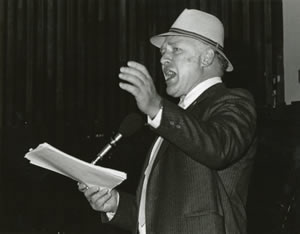 JON RAYMOND: Yeah, Peter Hawk posed some issues. Any Simpson's fan probably remembers the CEO of Globex, the Phil Knight-type corporate executive who first jogs into the frame from a corporate "fun run," and proceeds to spout every creative class platitude imaginable. I wanted to avoid that, obviously, but then: how to go about depicting this kind of person without resorting to stereotype? It was hard, and yet, at the same time, there are just so many of these people out there in the real world. Larry Ellison, Steve Jobs, and on down the line. You could even put Ken Kesey himself on the list if you wanted. They exist. These post-60s life coach/spirit guides that seem to perceive almost no difference between entrepreneurial ambition and spiritual yearning. And as far as I can tell, a lot of regular people actually do derive some insight and solace from these leaders' "wisdom." Maybe it's just that corporate culture has become so ubiquitous that we need our business leaders to espouse some spiritual guidance. Where else are we going to get it?
JON RAYMOND: Yeah, Peter Hawk posed some issues. Any Simpson's fan probably remembers the CEO of Globex, the Phil Knight-type corporate executive who first jogs into the frame from a corporate "fun run," and proceeds to spout every creative class platitude imaginable. I wanted to avoid that, obviously, but then: how to go about depicting this kind of person without resorting to stereotype? It was hard, and yet, at the same time, there are just so many of these people out there in the real world. Larry Ellison, Steve Jobs, and on down the line. You could even put Ken Kesey himself on the list if you wanted. They exist. These post-60s life coach/spirit guides that seem to perceive almost no difference between entrepreneurial ambition and spiritual yearning. And as far as I can tell, a lot of regular people actually do derive some insight and solace from these leaders' "wisdom." Maybe it's just that corporate culture has become so ubiquitous that we need our business leaders to espouse some spiritual guidance. Where else are we going to get it?
So I don't know. I wanted Peter Hawk to exhibit all the idealism, blindness, optimism, self-centeredness, and charisma of a typical Silicon Valley idea man. If that means he is inherently ridiculous, then so be it.
PROPELLER: It has always been interesting to me that books so powerfully symbolize "seriousness" for these business leaders. When they want to become philosophical and posit that their ideas are deeper than just business, they almost always do so by "writing" (they're usually ghostwritten) a book. In Rain Dragon, Peter Hawk wants to write his book, too. Have you read many of these business/philosophy books? Why do you think corporate leaders so often feel this need to position themselves not just as sound business leaders, but as visionaries?
JON RAYMOND: I've read a fair share of business strategy books. Not tons, but enough, I think. I entered this project under the assumption that we ignore the discourse of corporate leadership at our own peril, and that the way our executives describe themselves and their ideas deserves serious critical scrutiny. I still think that, but I also came away from my cursory research pretty disappointed in the texts. They aren't exactly eloquent, or rigorous, or even very strange. And they definitely don't peel back the mask on some occult machinery of power. Or rather, if they do, the machinery of power turns out to be a pretty sentimental, gimmicky, self-satisfied, poorly-organized device. As to why corporate leaders need to fashion themselves as visionary gurus? I think they, like so many of us, are creatures of immense ego, that's all. The role of visionary happens to be a popular one now.
PROPELLER: It's unfair to pretend that corporate thinking only exists outside of literature, of course. For the last few years, I feel like the literary world has been speaking almost obsessively about price points, profits, sales, etc. You've worked in both film and literature for a number of years now. If corporate leaders feel the need to produce books, why do you feel "book people" feel the need to adopt corporate mentalities? Or do you think that's even accurate? I could be off here...
JON RAYMOND: I will say that the current cultural climate seems to demand a lot of salesmanship on the part of artists. Maybe it's always been this way, but aggressive self-promotion has come to seem very much the norm. I don't even think it's necessarily a bad thing, either. I mean, why shouldn't we do our own dirty work, you know? There's nothing wrong with hustling your ass a little. I've definitely felt for a long time that the publishing industry could stand a bit more in the way of entrepreneurial hustle. Compared to the film world, for instance, book people can look just incredibly genteel.
That said, though, I would never want to be in charge of marketing books for a publishing company these days. I have no idea how a person would begin selling literary fiction in this climate. Where do you advertise? Where do you try and get reviewed? It's ironic that the Internet, which was supposed to create such a democratic and open-ended culture of art and writing, appears to be destroying that culture instead. Call me a crank, but I think the idea of Jeff Bezos selling discounted literature like it's some Amway product is chilling.
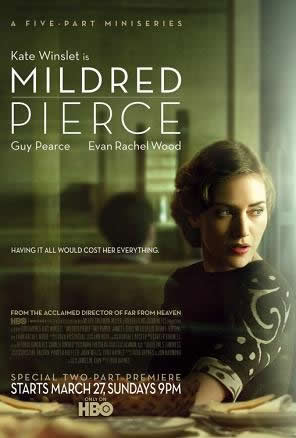 PROPELLER: That makes me wonder if Amazon carries Amway products, but undercuts Amway on price. I refuse to investigate. You're an award-winning writer for both the page and the screen now. How do you prioritize whether to spend your writing time working on screenplays or on fiction?
PROPELLER: That makes me wonder if Amazon carries Amway products, but undercuts Amway on price. I refuse to investigate. You're an award-winning writer for both the page and the screen now. How do you prioritize whether to spend your writing time working on screenplays or on fiction?
JON RAYMOND: The screenwriting is really a function of my friendships with Kelly Reichardt and Todd Haynes. If they want me to write something with them, I'm ready to go, and it becomes a priority. Otherwise, I'm only interested in screenwriting if someone is willing to pay me an adequate amount of money. So on a fundamental level, fiction is the priority. That's where I try and put my time. Sadly, it is mainly a priority only to myself, though, and other, supplementary forms of income are necessary to survive. So yeah, I guess the ladder of priority goes fiction, then screenwriting, both of which are trumped by anything with money involved.
PROPELLER: Before Rain Dragon, you published Livability, a collection of stories. What's next for you as a fiction writer? Will you return to stories, or stay in the more expansive realm of novel-writing for a while?
 Jon Raymond lives in Portland, Oregon.
Jon Raymond lives in Portland, Oregon.


